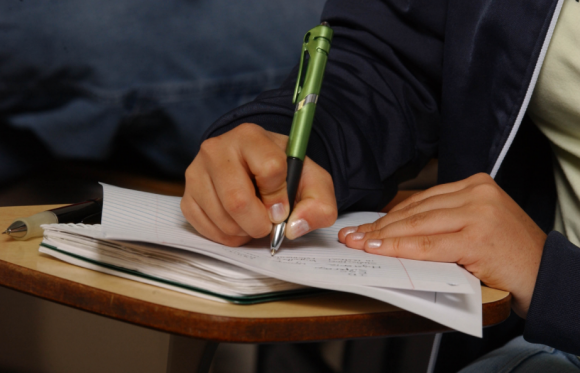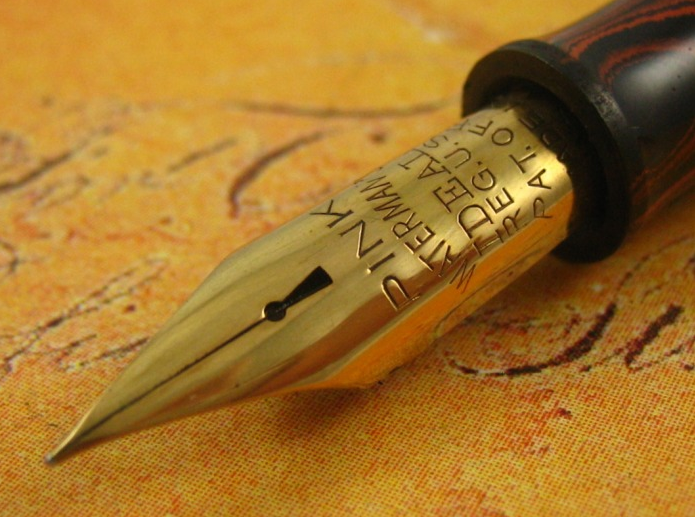 aNewDomain –– A few years ago I created my own note taking system and database. I worked inside the division of a huge, international call center at the time and the constant note-taking, tagging and typing was wearing me down.
aNewDomain –– A few years ago I created my own note taking system and database. I worked inside the division of a huge, international call center at the time and the constant note-taking, tagging and typing was wearing me down.
I got the idea to build a little database for my laptop that would let me type my notes into little pre-formatted forms — and with ready-made dropdown menu tags that I could just click on.
My idea fell flat, though.
Real-time tagging turned out to be nowhere near as useful or as important to the process as I’d thought. Also, I wasn’t a fast enough typist to take all digital notes. It wasn’t long before I was taking notes by hand again, and resumed my old process of typing them up, tagging and summarizing them afterwards.
Until natural language processing (NLP) tech gets good enough to obviate notes altogether, I’ll keep doing it the old-fashioned way.
This turns out to be a good thing, according to cognitive psychology research about the benefits of manual note taking.
Manual note takers remember more
And that’s a good thing. According to researchers at Princeton and UCLA, taking notes by hand leads to dramatically better understanding and detailed recall and retention. Laptop use has been under fire for years as a distracting factor in classrooms and meeting rooms. But now researchers suggest that even just taking notes on a laptop or device may result in impaired learning. Note taking on a device seems to lead to shallower processing they say, a theory that bears out in studies where students who took notes on their devices performed significantly worse on conceptual questions than did manual note takers. This may be the case as a result of a tendency for digital notetakers to transcribe notes literally as opposed to processing it and rewording it in writing.

“Our new findings suggest that even when laptops are used as intended — and not for buying things on Amazon during class — they may still be harming … performance,” explained Princeton’s Pam Mueller, the lead author of the study.
Manual note taking helps you come up with better, more apt words and phrases
And manual note-taking still seems more suited to the mental processes involved in my own listening, hearing, and word and phrase selection. I’ve also found that, when writing, I do better using a pen on paper followed by use of speech-to-text software to create an editable file.
For me, this has turned out to be a great approach for drafting both long and short documents.
Manual note takers are better listeners …
I was reminded of this note taking experience recently when I read James Sudakow’s Want to Take Better Notes? Ditch the Laptop for a Pen and Paper, Says Science.
This is one of the things he says about notetaking during meetings:
“…many of us still try to “multi-task” during meetings while listening to whatever is being discussed. The science tells us that we literally can’t listen to one person while doing another form of communication at the same time on our laptop (kind of like trying to listen to a conference call while writing an e-mail).”
Of course, there are different types of multitasking. I admit that I’ll occasionally check Twitter or Facebook during a boring conference call. If I’m really engaged while conferencing or on the phone I’ll have a notebook and pencil and paper handy for constant note taking. Sometimes I’ll use abbreviations and shorthand to represent words or phrases, and sometimes I’ll write down phrases verbatim. Rarely will I attempt real-time summarization or interpretation. My ear-brain-and-hand coordination isn’t fast enough for that.
But multitasking is the enemy of healthy information digestion and retention, say researchers. MRI scans show that a multitasking brain is inferior to a single tasking one on most measures.
“People can’t multitask very well, and when people say they can, they’re deluding themselves,” said neuroscientist Earl Miller to NPR recently. “And the brain is very good at deluding itself.”
And anyway, that you can focus on more than one thing at a time is an illusion anyhow, he adds. All your really do is shift focus between tasks rapidly, which tricks you into thinking you’re paying attention and catching everything. But you are not.
BYOFP!
There are situations where such real-time manual note taking will not work. Active meeting participation or meeting leadership makes note taking difficult or inappropriate. For example, if you are meeting with the President about sensitive legal topics you may want to write down the details after your meeting while the details are still fresh.
Another example when note taking might be insufficient is when the exact wording of what is said is required. In such cases appropriate manual or automated approaches should be sought that yield an accurate transcription, an example being where a recording of a one-on-one meeting with the President might be very useful later on when testifying before Congress.
Meanwhile, you’ll see me taking notes — by hand — using a spiral bound paper notebook and a pencil or pen. Or better yet, a fountain pen.
Just remember, BYOFP.
For aNewDomain, I’m Dennis D. McDonald.
Cover image: VintagePen.net, All Rights Reserved. Inside images: M-Novine, All Rights Reserved.













